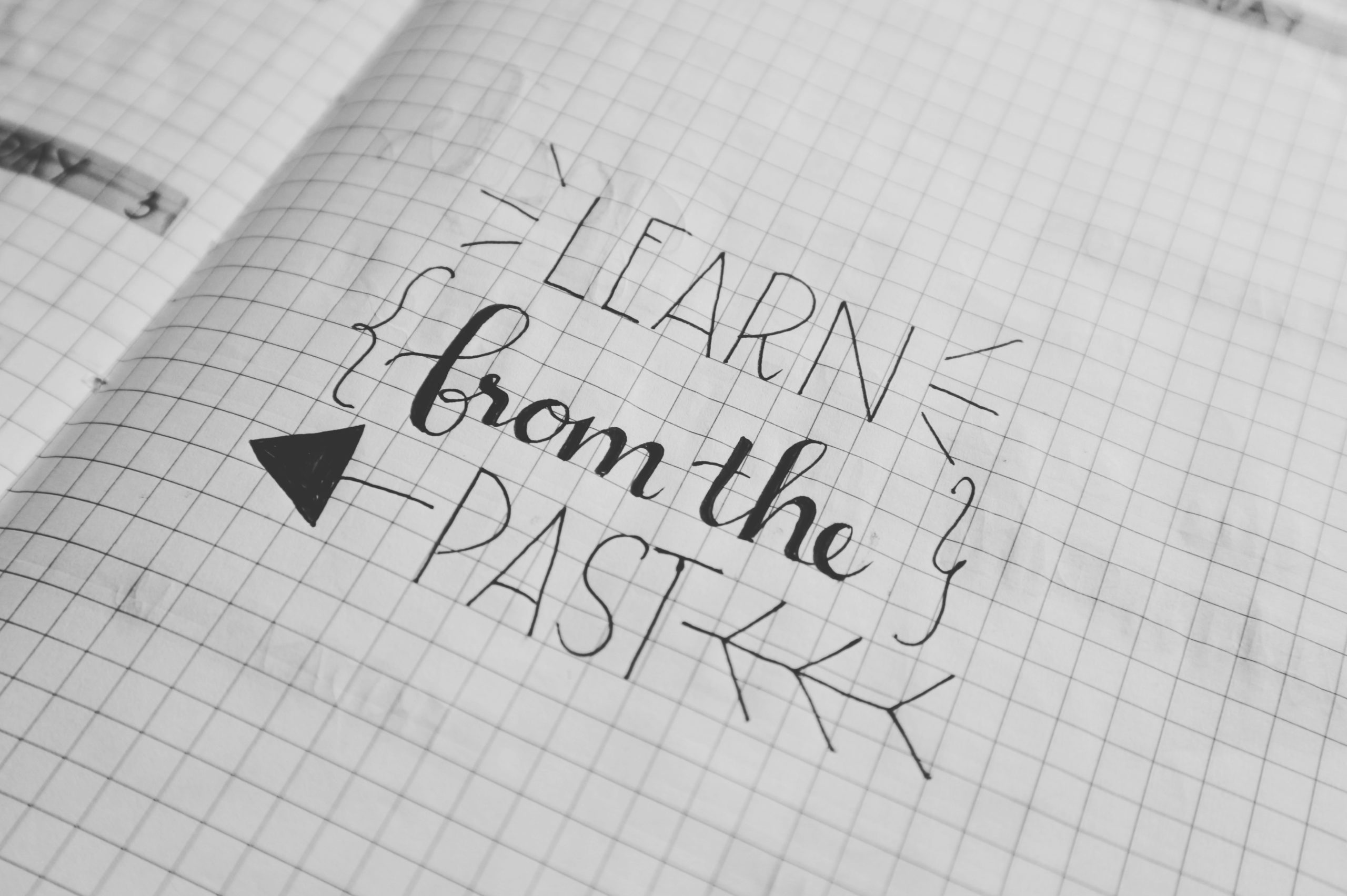
In a world that often emphasises the value of social connections, there’s an important distinction to be made between being alone and feeling lonely.
Many people associate solitude with a sense of isolation or sadness, but the truth is that being alone can be a fulfilling and rejuvenating experience. 😊
In this blog post, I will explore the nuances of being alone versus feeling lonely, understanding the importance of solitude, and embracing the positive aspects of both states.
Let’s get to it. 💕
The Difference Between Being Alone and Feeling Lonely:
Being Alone:
Being alone is a state of physical solitude, where you find yourself without the company of others. It can occur by choice or as a natural consequence of circumstances. Spending time alone provides an opportunity for self-reflection, relaxation, and personal growth.
It allows you to engage in activities that bring you joy, pursue hobbies, or simply enjoy a moment of peace. Being alone can be a deliberate choice, a time to recharge and connect with oneself. 🥰
Feeling Lonely:
Loneliness, on the other hand, is an emotional state that arises from a perceived lack of meaningful connections. It’s possible to feel lonely even in a crowded room if the connections are superficial or unfulfilling.
Loneliness is often characterised by a sense of emptiness, isolation, or a longing for deeper human connections. It’s a complex emotional experience that can impact mental and physical well-being. 😟
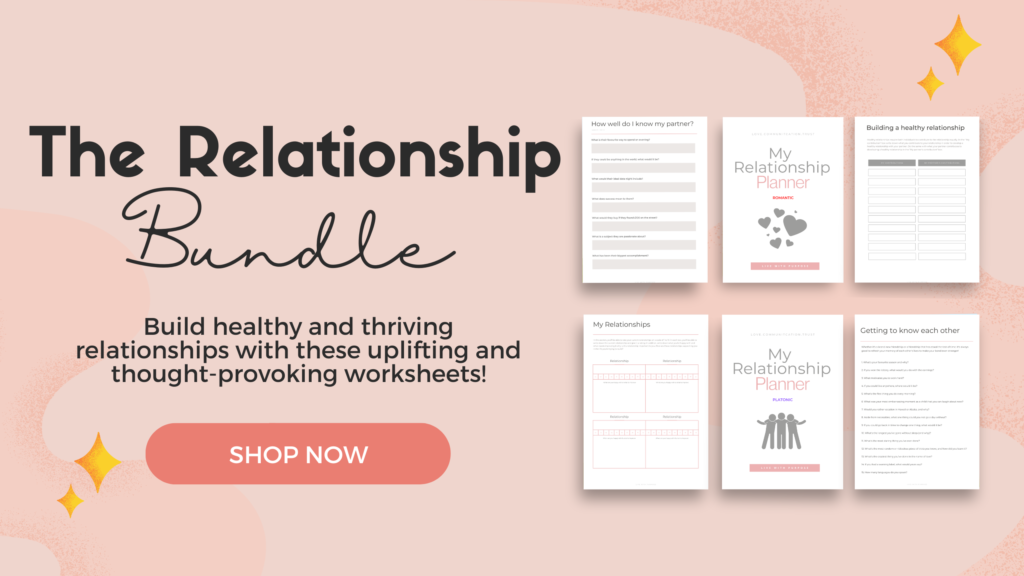
Embracing the Positive Aspects of Being Alone:
1. Self-Discovery:
Being alone provides an opportunity for self-discovery. It allows you to explore your thoughts, feelings, and interests without external influences. Use this time to reflect on your goals, values, and aspirations. Self-discovery is a crucial aspect of personal growth and can lead to a deeper understanding of oneself.
2. Independence:
Embracing solitude fosters independence. When you’re comfortable being alone, you become more self-reliant and less reliant on others for your happiness. This independence can empower you to make decisions based on your own needs and preferences, leading to a more authentic and fulfilling life. 🥰
3. Creativity:
Solitude often sparks creativity. When you’re alone with your thoughts, you have the mental space to generate new ideas, think critically, and engage in creative pursuits (yaay). Many artists, writers, and innovators find inspiration in moments of solitude, leading to the creation of meaningful and impactful work. 🎨
4. Rest and Rejuvenation:
Being alone allows for rest and rejuvenation. In a world filled with constant stimuli, taking time for solitude can be a form of self-care. It provides an opportunity to relax, recharge, and focus on activities that bring you peace and joy, contributing to overall well-being.
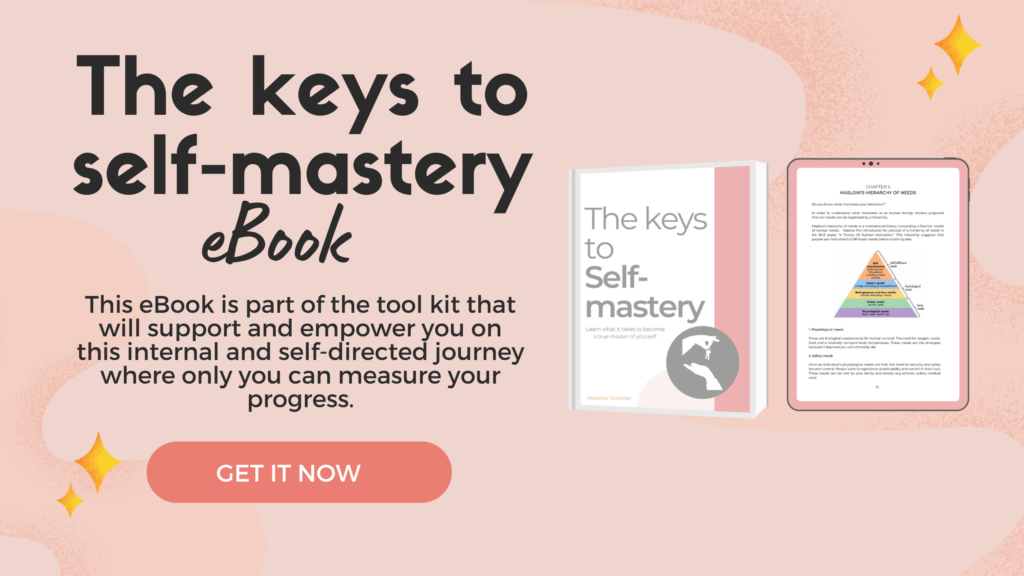
Addressing the Challenges of Feeling Lonely:
1. Cultivating Meaningful Connections:
If loneliness arises from a lack of meaningful connections, focus on cultivating relationships that nourish your soul. Seek out individuals who share your values and interests. Join clubs, organisations, or communities where you can meet like-minded people. Focus on getting yourself out there. Quality connections are often more fulfilling than a large social circle. 🫂
2. Volunteering and Giving Back:
Engaging in volunteer work or contributing to your community can alleviate feelings of loneliness. By helping others, you not only make a positive impact on the world but also connect with individuals who share a common purpose. Volunteering provides a sense of belonging and fulfillment.
3. Seeking Professional Support:
If loneliness becomes a persistent and overwhelming emotion, maybe consider seeking professional support. A therapist or counselor can provide guidance and a safe space to explore the root causes of loneliness. Addressing these issues with professional help can lead to a more fulfilling and connected life. 🫶
Finding Balance:
The key to a fulfilling life lies in finding a balance between being alone and fostering meaningful connections. Embrace solitude as a time for self-discovery, creativity, and rejuvenation. At the same time, actively cultivate relationships that bring joy and fulfillment. Recognise that both states are essential for a well-rounded and satisfying life. 💕
Conclusion
Being alone and feeling lonely are two distinct experiences, each with its own set of opportunities and challenges. Embracing solitude allows for self-discovery, independence, creativity, and rest. However, if loneliness creeps in, it’s crucial to address it by cultivating meaningful connections, volunteering, or seeking professional support. You are not alone. ❤️
Understanding the nuances between being alone and feeling lonely empowers you to navigate both states with intention and purpose. Ultimately, finding a balance between solitude and social connections contributes to a rich and fulfilling life. Embrace the positive aspects of being alone, foster meaningful connections, and savor the journey of self-discovery in this beautiful dance between solitude and companionship.
Pin this post for a reminder 📌 👇

Related Blogs
Things to Say “No” to for you to Live a Happier Life
How to Stop Settling For Less Than You Deserve
How to Become the Best Version of Yourself: A Guide For 20-Somethings
Do you find yourself in a rut and want to stop living from paycheck to paycheck every month? Want to break the cycle and learn how to stop having little money at the end of each month?
The definition of living from paycheck to paycheck is a lifestyle in which a person is using most or all of their monthly income to cover their monthly expenses, with no money in their savings.
Having to worry about whether you can pay your bills, the late fees that can occur when you miss a payment and going into debt takes a toll on you both financially and mentally.
How far are you from living paycheck to paycheck? 🤔
If most of the money from your paycheck is covering your monthly expenses, you may find yourself pretty close. Consider these factors:
👉 Do you have savings?
👉 If you do have savings, is it enough to cover your expenses for at least a month?
👉 Do you have a credit card?
👉 If you do have a credit card are you confident enough you can pay your balance off in full at the end of the month?
This lifestyle is becoming increasingly popular, with 1 in 3 UK households living this way and 78% of American full-time workers.
You don’t have to live like Mr. Krabs or Julius from Everybody Hates Chris in order to keep money in your bank account. (I know those are two very extreme examples but stay with me here 😂)
You are very much capable of achieving your financial goals. Whether that’s an extra £1,000, £10,000 or £100,000 a month. It’s doable only if you believe it’s doable.
Let’s get this mula. 💰

Here are the top 10 ways to stop living from paycheck to paycheck and enjoy extra money at the end of the month.
This post contains affiliate links. Read my full disclosure policy here.
1. Track your spending
The first step to having more money at the end of the month after your expenses is to write down what you spend every month and compare it to your monthly income.
Track both your card purchases and cash purchases to get a better understanding of your spending habits. You will then begin to notice unnecessary spending, overspending and bills that can be reduced. True financial wealth is built when you spend less than you make and to do that you need to understand where your money is going.
Cancel subscriptions you’re no longer using and understand that there’s food at home and you don’t need to be on UberEats and Deliveroo every day are usually the top things people recognise when they thoroughly go through their finances.
Need help with keeping track of your spending? Check out my Finance Bundle here 👉 FINANCE BUNDLE
2. Decrease your spending
Easier said than done, yes. However, the key to cutting back is to challenge yourself to cut back £50 a week on groceries or an amount that is in line with your budget. It’s best to cut back in increments as it is a more manageable approach than cutting back a large sum at the beginning.
Try to reduce your spending in your variable expenses by as little as £10 or £25 a month as there’s only so much you can do with your fixed expenses but trying to get a better deal won’t hurt! (I talk about fixed expenses in my 4th tip)
These extra savings will add up quickly and help you on your way to saving more each month.
3. Make savings automatic
Saving money is as important as making money.
An automatic savings plan is quite simple, you just need to schedule a recurring deposit from your bank account. How much you should deposit depends on your financial situation and won’t subsequently hurt you in the long run.
Most automatic savings are locked in or have penalties for early withdrawal making dipping in and out of your savings a lot harder than usual making it a great option for saving!
When you have a year’s worth of savings in your bank you feel better equipped to deal with life’s unexpected challenges. Even if you just start with £50 a month you will feel more confident with handling your finances.

4. Evaluate fixed outgoings
Write out all of your fixed outgoings such as your rent, electricity, gas etc. Look at each expense and see if these can be reduced, even if it means switching a provider or living in a less expensive area.
You could have a six-figure income and still always end up broke at the end of the month if you live in a high-cost city. The cost of fixed outgoings is one of the main reasons for living from paycheck to paycheck, so it’s good to evaluate it at least every three months.
Here are some fixed outgoings you could consider reducing:
🏠 Rent/Mortgage
🚘 Transport
💡 Utilities
🏥 Insurance
📺 Subscriptions
🎭 Entertainment
📱 Phone Bill
🌐 Internet
5. Create a budget
Creating a monthly budget that clearly shows when money comes in and where it goes is a great way to ensure that you will always have enough money for the things that you need.
A lot of people associate budgeting with restrictions and a lot of hassle. However, budgeting can save you money and allow you to have more to spend by helping you make the most of your hard-earned money.
People who do not have or stick to their budget tend to save less money than people who do. This is because when you budget you assign your money to categories, giving yourself a “cap” on your spending for each thing that you regularly spend your money on.
Remember to put some money aside for fun! Budgeting shouldn’t restrict you from being able to live a well-rounded life. It stops you from spending like you have an endless flow of money that comes out of nowhere.
Related: A fan of affirmations? Check out my 25 Affirmations for Financial Abundance > GIMME GIMME GIMME

6. Find the fun in frugal living
Sure, cutting back on extras is not one of the most exciting activities to do but living frugally definitely has its monetary benefits. Contrary to popular belief, frugal living doesn’t mean buying everything that is cheap and not buying things simply because they’re expensive.
Living a frugal lifestyle means being smart with your money and not wasting your money on things you actually have no need for. This lifestyle does require a decent amount of self-discipline but you’ll definitely see the reward in your bank account.
Frugal living = NO IMPULSE BUYING
7. Increase your income
I’m sure you knew this one was going to be on the list! But don’t be fooled, an increase in income doesn’t mean that it can save your paycheck to paycheck problems.
As our income increases our spending habits seem to do the same, which leaves us back at square one. If you have a solid budget, spending responsibly and you’re still struggling to make ends meet, then making more money is the way to cure your financial woes.
Think about going to classes or teaching yourself skills that could increase your salary at work. Alternatively, you can pick up a side hustle/ second job that provides more immediate cash such as being an uber driver or a freelancer.
Heather’s Hot Tip: While your income increases try to keep your expenses the same (less is even better) don’t get caught up in the flashy lifestyle trying to prove a point to others. The only person that needs to know you got money is you. 🤷🏾♀️
8. Change your money mindset
Having a limited belief about the abundance of money that you can have will hold you back financially in life. Having enough money is maybe enough to survive but not enough to live life to the fullest. We all deserve to live the life we want to live, with the food we’d like to eat, and the places we’d like to visit.
If you find yourself living from paycheck to paycheck then you’ve probably cultivated a scarcity mindset in relation to money.
Here is a list of ways to help shift your mindset on money:
💰 Change your money script (Instead of telling yourself “ I’ll never be able to afford that” tell yourself “ I always have more than enough money”)
💰 Create a vision board of the life you want to live
💰 Set bigger monetary goals
💰 Think of money as a tool, not a result.
Want some help to turn yourself into a financial badass? Yes? Well, take a look at one of my favourite money mindset books 👉 SHOW ME 😱

9. Get an accountability partner
With any goal, it’s important to have a cheerleader by your side. Having someone that you’re accountable to will help you stick longer to your money goals as you know that someone is “watching” you. 👀
Accountability partners are also great for keeping you motivated as saving and spending your money wisely is something you should be in for the long haul and there will be times when you’ll feel tempted to splurge and give up, so having someone there to support you will make the journey a lot smoother.
You: I’m hungry, let’s get Mcdonalds
Accountability Partner: Nuh-uh you’re saving, you got food at home.
Bamn! you just saved some coins. 👛
10. Always keep going
It can be deflating if you mess up with your budget and overspend in a few categories. Don’t give in to the temptation of starting afresh the next month. Continue to track throughout the month so you can see what you need to change and by how much.
Over time your budget will evolve such as an overhead increase or a new addition to your family. Recognizing that you are overspending inconsistently in a particular area can help you know if you need to increase the budget in that area or cut back on others.
You got this. 🤞
Well! Those are my top 10 tips for ways to stop living paycheck to paycheck. Which one of these tips will you be implementing to help save you some extra dough at the end of the month? Let me know in the comments!
Pin this post for a reminder 📌 👇

Related Blogs
How to improve your life one day at a time
Firstly, let’s establish the difference between what a habit is and what a routine is. For the longest time I didn’t think there was a difference as I thought both words meant “doing the same thing over and over again without thinking about it” but I was definitely mistaken.
Habit: An action we do often in a regular and repeated way
Routine: A regular way of doing things in a particular order
To call a behaviour a habit it needs to be undeliberate action. If the behaviour requires a high degree of intentionality and effort, it’s definitely not a habit. We all possess both good and bad habits that we barely give a thought about because … well… they’re habitual. However, have you ever thought about why you may have this habit?
We consider good habits those that are beneficial to our physical and mental health. Such as waking up early and going for your daily run and writing in your gratitude journal.
We consider bad habits those that are not beneficial to our physical or mental health such as smoking or unhealthy eating. Most of our bad habits are caused by stress and boredom.
Hands up if you’ve ever got up and went to the kitchen to go get something to eat just because you were bored… I know I sure have.
Having a routine is important because it can help us cultivate positive daily habits and prioritise important practices such as self-care, exercise and maintaining a healthy balanced diet.
No matter what annoying or stressful thing happens during the day, knowing that you’ll be having your evening meal at 6pm and watching your favourite show at 7:30pm can bring real comfort to our lives.

Everyone has their own special routine. You could probably list 5 things that you do every morning and evening without fail. It’s the tiny habits that we form in the course of our lives that makes us different from the people around us. These tiny habits may reveal some insights into your personality traits and how you approach life. I’m going to list a few common habits and what it may say about your personality if you do them!
Your eating habits
Yes! The way you eat actually reveals your personality and behaviour tendencies (Who knew huh?)
Here are the personality traits Ms.Boghossain ( A behavioural food expert) marks each type of eater.
Fast Eaters – Impatient, Ambitious, goal orientated
Slow Eaters – Sad, Confident, low energy
Picky Eaters – Anxious, neurotic, detailed
If you’re someone who likes to separate different foods on your plate you’re most likely very detail-orientated and very cautious in your everyday life.
Think about the last meal you ate. What category do you fit in?
Your punctuality
Are you one of those people who say “I’m on my way” but really you’re in the shower wondering what on earth you’re going to wear. Or are you the person who doesn’t need to send the “I’m on my way” message because you’re already at the meeting point waiting for people to arrive?
(I’m defo the second one)
Does our attitude towards time and punctuality say anything about our personality? Indeed, it does.
Research suggests that punctuality is a matter of preference that’s linked to a person’s innate behaviour trait.
Often/always being punctual shows:
⭐You can organise your time
⭐You are dependable.
⭐You are a realistic thinker
⭐You have discipline
Often/ Always not being punctual shows:
👉 You are disorganised
👉 More likely to be a daydreamer
👉 More emotionally driven
While being punctual normally implies that you have certain personality traits such as self-discipline and reliability. This doesn’t mean that people who have tendencies to be late definitely DO NOT carry these traits. However, it’s clear that your relationship with time can tell you a thing or two about who you are and what you value.
How often you use your phone
Millennials are by far one of the most active groups using mobile phones. Smartphones have provided us with the ability to access the entirety of the internet on the go at any given moment. They help connect us with friends and family from all over the world and deliver news to us at a moment’s notice. However, there are some negative side affects when it comes to excessive phone usage (just like with anything not done in moderation!)
One study looked at “The effect of iPhone separation” on the cognition, emotion, and physiology of young people who were asked to give up their phones for a little while. The participants weren’t allowed to answer their ringing phone while trying to complete a word search puzzle. The research showed that their heart rate and blood pressure increased, and the participants reported feelings of anxiety and unpleasantness.
These results show how hard millennials are finding to live their day to day lives without getting distracted by the pinging of their phones and the negative effects it has when restrictive usage is applied.
What excessive phone usage shows:
– Possible need for validation through social media
– Loneliness
– Lack of hobbies/ Interests
– Lack of emotional stability
What moderate/low phone usage shows:
– High productivity
– Organised
– Active social life (in real life)

Your spending habits
Yes my dear, how you use your coins can signal key traits about your personality. People use their money to express their individual preferences which can expose your habits.
“Your willingness to spend money seems to hinge upon one factor: how psychologically uncomfortable you feel when you have to part with your money, explains Cynthia Cryder, Associate Professor of Marketing at Washington University.
If you’re someone who has trouble spending money you’re more likely to:
✨Be an overthinker
✨Have more self-control
✨Have an issue letting go
If you’re someone that likes to splash that cash you’re more likely to be:
💰Carefree
💰Focus more on the present
💰Extravagant
These are just a few examples of what daily habits and routines say about your personality, did you notice any that you do? Let me know in the comments!
Related Blogs
Everything you need to know about habits
Dedicating your precious time to help make someone’s day even better is one of the best ways you can use it.
I personally try to do a minimum of 1 act of kindness a day, whether it’s randomly buying my little brother his favourite Ben and Jerry’s ice cream or making my sister breakfast just in time after she finishes her workout. These random acts of kindness lift my spirits when I see their reaction to them. Seeing a loved one gleam with happiness from something I’ve done for them is an indescribable feeling that I always want to keep getting.
It doesn’t only have to be a loved one you can share your love with! A stranger will appreciate your love too.
“The secret to living is giving”
Tony Robbins
Below are 10 different small acts of kindness that have the power to lift anybody’s spirit.
1. Compliment them unexpectedly
It definitely feels great when someone compliments your new shoes or your new hair colour but unexpected compliments can delve even further, such as telling your friend you really enjoy their outlook on life or telling a new mum she’s doing an amazing job. We all daily think of split-second compliments when we see or hear something that we like about someone but don’t always tell them. This could be for many reasons such as :
👉 You think that the person won’t accept the compliment which would make you feel awkward.
👉 You’re introverted.
👉You rehearse the compliment in your head so much that you talk yourself out of telling the person.
I urge anyone who has positive thoughts when they think about others to share them, as it will make you happy and will definitely do the same for them.
2. Give them a surprise gift
Who doesn’t love getting gifts? I definitely do! Gifts are not just for birthdays and other special occasions. Sending someone a random gift because you saw something that reminded you of them has LOADS more meaning than the conventional gift-giving protocol. Everyone gets satisfaction from knowing that they have been thought about. What have you seen or read recently that would be the perfect gift for someone you know?

Want to gift someone something useful and practical? Check out my printables here > PRINTABLES
3. Let someone know how much they mean to you
Life’s too short to conceal your feelings, whether it’s your partner, your friend or your sibling. Letting them know how you feel and the impact they have on your life is the best way to build on your relationships as both you and the person feel loved, and who doesn’t want to feel that?
A lot of people go through life assuming that their feelings for others are self-evident.
It’s not.
No one is a mind reader and you never know how long someone has got left on this Earth. Let them know how much you mean to them.
4. Pay for someone’s meal
This doesn’t necessarily have to be for someone who can’t afford a meal, it could be for the person behind you in the line or you could buy ice cream and give it to the first person you see on the street. The act of surprising somebody with food (FREE FOOD at that) is a heartfelt gesture that anyone would appreciate.
That would definitely make my day 😂
5. Hi 5 a stranger
Now, I’m not going to lie to you. I’ve heard some awkward stories of people doing this, whether the person just smiles back and doesn’t Hi 5 or they just simply look at you like you’re mad. But, I’ve also heard great stories of other people Hi-fiving back with huge smiles on their faces and getting excited at the fact they were chosen by a random stranger to engage with. Some people like being noticed in public and others don’t, don’t get discouraged if someone doesn’t reciprocate the same energy you give, there’s someone out there who will.

6. Go out your way to make someone laugh
This one is really fun. Whether you’re a natural-born comedian or someone who loves to repeatedly search up “Dad jokes” to make someone laugh. Going out of your way to make someone laugh so hard they think that they’re dying is both as beneficial for you as it is for them. Have you ever had one of those laughing fits with your friends where you both keep adding stuff to the joke that makes it even funnier and you end up on the floor with a severe stomach cramp? I hope you have because it’s the best type of laughter!
Here is a couple of Dad jokes I’ve regrettably heard in my time:
1. Q. What’s 8?
A. 0 with a belt.
2. Q. Why did the picture go to jail?
A. Because it was framed. 🙄
And my personal favourite…
3. Q. What do you call a woman who sets fire to all her debts?
A. Bernadette
I know, I know. 🤦♀️
7. Give surprise notes
My family has a lovely habit of leaving handwritten notes on each other’s beds for numerous reasons such as:
👉 One of us is having a hard time and needs a pick me up.
👉Something great has happened and want to remind them how proud we are.
👉Came across an interesting/motivational quote.
Leaving someone a surprise message is a great way to let someone know that you’re thinking of them, and it’s a keepsake that can be kept forever. Think about someone who has done something amazing recently or is going through a hard time and what you can say to uplift them.
8. Bake for someone
Given that I’ve been in the baking industry for about a decade, this definitely needed to be on the list! Over the years I’ve seen how baked goods have filled people’s hearts with joy and actually make some people cry (in a good way I promise). Going out your way to go to the supermarket to buy all the ingredients, to then get home and bake which usually results in your kitchen looking like a tornado hit it (always remember to look at the setting of your mixer before you start, it gets the best of us). You’ll put a lot of work in and it will show with whatever you make, so get your bake on.
Pop me an email if you want me to share some baking tips and tricks!

9. Help someone network
We’ve all heard it before…“It’s not what you know it’s who you know”. It’s vital to network in both your personal life and if you have one, your business life. Introducing two or more people together because you know their skills will complement each other or they can benefit each other’s lives in one way or another, is a great way to get things going. Whether it’s helping someone find a business partner or simply someone to go the gym with. Being that bridge in connecting people together can cause life-changing moments to happen. Wouldn’t you want to be a part of that?
10. Ask someone if you can help them with their errands
If you’re lucky enough to have some free time on your hands helping somebody out can take a load off their mind, whether it’s driving someone to the shop or helping someone pack for a vacation, no one is going to say no if you’re trying to make their lives easier for them for the sake of just being a great person. Time is precious, so instead of letting it slip you by go out of your way to help somebody in need and show them how much you care.
Those are my top 10 ultimate ways to make someone’s day. Whether you pick all 10 or just one, I guarantee that implementing any one of these tips into your life is going to brighten a few people’s days!
Which one are you looking forward to doing?
Related Blogs
How to create the best daily routine
Want to be successful in life? Learn how to have Self-discipline.
Will Smith once said: “Self-discipline is self-love” which I couldn’t agree with more. It equates to you telling yourself “ I love myself enough not to do XYZ” or “ I love myself enough to do XYZ”
Having self-discipline means having the ability to make a conscious decision regardless of your emotional state and follow through with it. Imagine all the things you could achieve with that capability. Think about all the times you have told yourself you were going to do something and you either ended up not doing it at all or did it for a few days and thought “ to hell with it” and went back to your old routine.
How different do you think your life would be if you had stuck at the habits and goals you promised yourself you would?

There’s no need to worry about it now, the time has gone. Let’s start looking forward to the future.
The fact that you’re reading this tells me you’re not dead which means you still have a chance to do everything that you’ve promised yourself that you were going to achieve. Self-discipline isn’t something you’re born with (how awesome would that be) It’s rather something that gets developed over time by creating daily rituals that subsequently helps you to achieve your goals. Having Self-discipline requires you to proactively train yourself to follow a specific set of rituals and standards that help you shape your thoughts and behaviours to what you need to become your version of success.
What are rituals you ask?
Rituals are conscious, deliberate and consistent actions that help you build habits over a period of time. We all have daily rituals that we don’t even think about such as brushing your teeth every morning or watching your favourite show at the same time every week (The Real Housewives Of Atlanta is a guilty pleasure of mine).
So what do rituals have to do with Self-discipline?
Developing a set of rituals can help you re-focus your mind on what’s most important, allowing you to work with a deeper sense of purpose, dedication and urgency within your life which will eventually boost your levels of productivity. There are many rituals you can start to improve your self-discipline, here’s a list of daily rituals that will drastically improve your chances of wealth and success.
1. Practice gratitude
We all get lost in the day-to-day hustle and bustle of life which makes it easy to lose sight of what we should be grateful for on a daily basis. Taking time out of your day to express gratitude for what you already have and for what you have already accomplished gives you the opportunity to reflect on what matters most in your life.
As a personal favourite, I enjoy reciting things I’m grateful for within the first 30 minutes of waking up. It makes me feel better about my day and allows me to let go of any negative energy that I’m feeling.
There’s nothing too small in your life to be grateful for. The sun rays on your face when you wake up, your partner giving you a kiss on the cheek before you leave the house and your pet sleeping peacefully at the bottom of your bed are a few small things that may go unnoticed but make a great day nonetheless.
2. Meditate first thing in the morning
Meditation is a technique of resting the mind to reach a state of consciousness that is very different from your normal waking state. Daily meditation practices can help reduce anxiety, lower stress, increase happiness and help you develop an attitude of gratitude (which helps with my first point)
Meditating first thing in the morning helps set a productive and restful tone for the rest of the day. Before you say “I don’t have the time” Let me tell you this… you really do. Wake up 5-10 minutes earlier than usual so that you’re free of distractions then relax and get started.
Want to learn more about mindfulness and meditation? Check out my eBook The keys to self-mastery here > Damn straight I do
3. Exercise
I really hope you didn’t sigh when you read that, haha. Exercise has many positive effects on both the mind and body, it stimulates the release of endorphins that trigger a positive feeling in the body similar to morphine. Whether you prefer a morning or evening routine finding time in the day to workout gives you time to decompress and feel good about yourself.
Exercising is one of the best habits to adopt if you want to live a healthy lifestyle.
Think about what changes you can make to your lifestyle today to help you live a longer and healthier life.
4. Reading
If you don’t read regularly already, deciding what to read/not getting distracted easily while reading can be difficult. Don’t let that discourage you, starting with a page a day is better than not starting at all. If you’re totally not into reading, then you can listen to informative podcasts and audio books.
Q. So why should I make reading part of my daily routine?
A. The most successful people are always learning. Bill Gates and Warren Buffet were once asked about which superpower they could choose if they could have any superpower in the world and they both said “Speed reading”. Of all the superpowers in the world they could have chosen, both these billionaires chose reading as it was incremental part of their success.

5. Get out of your comfort zone
It’s hard I know, but making an effort each day by doing something that pushes you out of your comfort zone has many positive benefits and I’ll tell you why.
👉 You will boost your self-confidence.
👉 New challenges and different experiences rewire your brain and make it more adaptable and stronger.
👉 You’ll become more resilient and will be able to handle anything that comes your way.
👉 You’ll learn a lot more about yourself and what you’re capable of.
There’s no better way to grow and learn more of what you’re capable of than stepping out of your comfort zone. Creating change is hard as your brain is wired to expect the worst-case scenario due to the uncertainty of the outcome. However, if you’re always working within your norm you’ll never know what you’re truly capable of, and this is what I’m here to help you find out!
Check out my Getting out of your comfort zone mini-course here > HELP ME GET OUT OF MY COMFORT ZONE
These are just a few of the rituals that you can start putting into practice to put you on the first step in growing and developing yourself into a well-rounded and successful person. Whether you start off with 1 a day or 5, you’ve got this!
Charles Duhigg author of The Power Of Habit said “Once our brains are conditioned to incorporate habit, we use little to no brainpower on that particular aspect of our day; it’s as almost as if we’re sleeping during our waking hours”.
This is why it’s important to live intentionally. When you’re consciously unaware of what you’re doing day in and day out you’ll never be certain what kind of habits you’re adopting and how they’re having an impact on your life.
This is why daily activities such as journaling and mediation are important. It’s just you and your thoughts. It’s the best way to know and understand yourself better.
FAIL YOUR WAY TO SUCCESS
Self-Discipline is the act of trying, failing and trying again. Don’t think that people who are Self-disciplined don’t have off days, whether that off day is scoffing down 10 doughnuts instead of going to the gym or spending half their day scrolling through social media instead of working on their business plan, nobody is perfect and things you don’t want to happen, inevitably happen. It’s having the ability to learn what went wrong and bounce back from it quickly is what really matters.
According to a study by Stanford University, the amount of willpower a person has is determined by their beliefs. If you believe that you have a limited amount of willpower you most likely will not get past those limits. If you do not place a limit on your self-control you are likely to drain yourself with less meaningful tasks before meeting your goals.
Never fear failure as it is inevitable, pain is part of the process. Learn to fail forward to success and worry about becoming a better person today than you were yesterday.
How do you do that? By failing over and over again.
Heather’s top tip: Always remember that you don’t have to be great at something to start, but you have to start in order to be great
“If you don’t have 10 minutes to work on yourself every morning, then you don’t have a life”
Tony Robbins
Which rituals do you currently do to improve your Self-discipline? Let me know in the comments 🙂
Related blogs:
How to improve your life one day at a time
Getting picked last for a dodgeball team, being told “I think we should just be friends” or “you’re not a right fit for the job role” are all forms of rejection that can hurt like hell.
Rejection can feel like a pool filled with different emotions such as; anger, shame, sadness and grief. Sometimes people don’t even understand why they have been rejected in the first place. This can lead to a downward spiral of negative emotions.
Nobody is immune to rejection. When you put yourself out there you face the possibility that you may not make the cut.
Scientists placed people in functional MRI machines and asked them to recall a recent rejection and they discovered that it activated the same areas of the brain as physical pain. This is why even small rejections can feel bigger than they are because it feels like actual physical pain. Damn.
Not only is rejection disappointing but it can make you feel like something is wrong with you. If you get rejected enough times it can heavily affect your self-esteem, making you doubt yourself and your place in this world.

Rejection knows no boundaries. It can invade your romantic, social and job situations alike. Not only can it make you feel inadequate, it also communicates the sense to somebody that they’re not loved or wanted or not in some way valued. Which is obviously not the case.
Guy Winch, Ph.D., psychologist and author notes that many times the rejection does 50% of the damage and we do the other 50% of the damage. “We start with this high volume of negative self-talk and criticism that takes the rejection to another level” he says.
If you deal with rejection the wrong way such as ignoring your emotions, lashing out at people and vowing to never leave your comfort zone again can only negatively impact your personal and professional relationships. Fortunately enough, there are ways you can deal with rejection that will make you come out stronger.
Dealing with rejection is a skill that can only be developed over time. The more you try, fail and dust yourself off to get back up again the more you’ll be able to cope with the word “No”.
Different types of rejection
Social rejection – This type of rejection can occur at any age and usually begins in childhood. Social rejection can include bullying and alienation in school or in the workplace. Those who challenge the status quo of society are more prone to social rejection.
“Humans have a fundamental need to belong. Just as we have needs for food and water, we also have needs for positive and lasting relationships”. Says C. Nathan DeWall, PhD.
Rejection in a relationship – People may experience rejection while dating or in a relationship, it can come in the form of withholding affection or intimacy. When an individual decides to end the relationship this can cause the other person to feel rejected. The suffering that comes with this type of rejection is arguably harder than the other types. It can leave you speechless and feel physically sick. The intensity of the reaction to the rejection will gradually fade. You’ll have your good days and your bad days but little by little you will start to enjoy life again. I promise.
Familial rejection – Rejection from one’s family (typically parental rejection) is likely to affect an individual throughout life. We are often taught that our family’s love is unconditional, so when a family member rejects another member it can be excruciatingly painful.
At the end of the day, you didn’t ask to come into this world, so feeling rejected by one or both of the people who brought you in it can make you feel out of place.
Familial rejection can look like:
-Parents who avoid spending quality time with their children
-Failing to show interest in their children
-Limiting privileges without a reason
-Parents who refuse to follow through on the promises they made
Romantic rejection- Romantic rejection can occur when a person asks for a date and is denied. It takes courage to reach out and approach someone with who you wish to begin a new relationship. When met with rejection it brings up not only frustration but also shame.
Life’s too short to not shoot your shot. If they’re not interested, move on. There’s someone out there for you.

Here are some tips for coping with rejection:
Acknowledge your emotions
“If you don’t know what hurt you, you will bleed on people who didn’t cut you” – Unknown
Emotions are complex. Often if we experience rejection we naturally want to create some armour to protect ourselves to prevent more emotional pain. Wearing layers of body armour prevents connection with others and does not contribute to developing security. It creates a false sense of safety in a controlled environment which is not realistic.
Rather than deny, suppress or ignore your emotions, you need to acknowledge them. Having the confidence to deal with uncomfortable situations head-on is essential to coping with discomfort in a healthy way.
Passing off your pain as “no big deal” will only prolong it and make you more fearful of rejection. The key is to be able to face your pain.
See rejection as personal growth
Getting rejected is proof of your effort. It’s a sign that you’re willing to try new things even if they don’t plan out how you want them to. It’s a sign that you’re aiming to live your life to the fullest knowing that there is a chance you can get knocked down to the ground.
If you have never been rejected you are living life way in the comfort zone my friend. How will you know that you’re pushing limits if you don’t get a few knockbacks here and there?
Working hard day in day out doesn’t exempt you from failure. You’re not always going to be rewarded for your hard work. It’s a hard pill to swallow but it’s true.
Start getting comfortable with being uncomfortable and watch how your life unfolds.
Focus on something beyond yourself
In the immediate aftermath of rejection all you want to do is focus on what happened and what you may have done wrong in order to be rejected. “but I just don’t get it, how could this happen to me” train of thoughts will leave you internally suffering for no reason. Sometimes it’s best to just focus on something beyond yourself to help get your mind out of that rut.
Ask a family member or a friend if there’s anything that you can help them with, volunteer at a food shelter, plant flowers in the community garden. There are a number of ways you can ease the process of rejection by getting up and focusing on the good things you can do in your life.
This doesn’t mean you should mask your pain and pretend it never happened. It’s acknowledging that you can’t change the past and dwelling on it is only going to make you suffer. Focus on something positive and get that spring back in your step again.
Look after the basics
The feeling of rejection can have both physiological and physical effects. So, it’s best to remember to look after number 1. Make sure you get plenty of sleep, eat well and go and get some exercise.
Trying to move forward when you’re still in emotional turmoil will never end well. Take some time to process your thoughts and feelings instead of pushing them away.
Keeping it in can affect you mentally and physically. It’s your responsibility to deal with your feelings, just make sure not to push yourself before you’re truly ready to let go.
Go at your own speed, don’t listen to people who say, “Omg you’re not over that yet!?” They don’t know what’s going on in your heart and your head. Only YOU truly know who you are. Don’t abide by other people’s timelines. Move when you are wholeheartedly ready to move. Don’t rush the process.
Practice a simple self-affirmation exercise
1. List five qualities or attributes that you have and that you really believe are valuable.
2. Pick one of those five things and write a brief passage about one of them (about 1-2 paragraphs will be okay). Elaborate on why it’s an important and valuable quality.
This simple exercise will remind you of your self-worth and make you feel infinitely better about yourself and become more resilient to rejection that comes thereafter.
We all have a fundamental need to belong. When we get rejected we feel a disconnection which adds to our emotional pain. Finding our way back to those who love us or reaching out to members of groups who value and respect us has been found to soothe emotional pain after rejection.
You are not alone in your pain. Feel your feelings, accept your feelings then seek help if needed.
How do you deal with rejection?
Related blogs
The ultimate guide for coping with change
Your sense of self-esteem impacts EVERY area of your life. Your relationship with your family, your significant other, your career, your physical and mental health are all reflections of your self-esteem.
Even though having high self-esteem is indeed a good thing it’s only good in moderation. Having very high self-esteem – like that of a narcissist- isn’t something to aim for.
Even though people with very high self-esteem feel great about themselves they tend to be extremely vulnerable to criticism and negative feedback about themselves and their work.
When you take everything personally and avoid constructive criticism like the plague, you stunt your growth. You’re never going to stop making mistakes, so choosing to ignore the help of someone showing you the right way will affect you negatively in both your personal and professional life.
The only way to learn is to accept guidance and feedback. You’ll be doing yourself a great disservice if you believe you know it all and no one can do it better than you because the reality is… there’s someone else out there that is.
Why is building self-esteem so important?
The more self-esteem you have the more “inner stability” you have. When your opinion of yourself goes up you stop trying to seek validation and attention from others.
Your level of self-esteem influences the choices and decisions that you make. In other words, self-esteem serves as a motivational function by making it more or less likely that you will take care of yourself mentally, physically and emotionally.
When you have low self-esteem you may hide away from going to social events, avoid things you find challenging and be hesitant to try anything new. In the short term, avoiding anything that takes you out of your comfort zone will make you feel safe at the time but in the long term it will eventually backfire. This is because you’re reinforcing underlying doubts and fears. You’re essentially teaching yourself that the only way to cope is by avoiding things.
Here are a few ways to help build your self-esteem so that you can thrive and live a life that reflects who you truly want to be.
You deserve it girl!
Change your story
We all have a narrative or a story that we have created about ourselves that shapes our self-perceptions which our core self-image is based on. Your level of self-esteem may have grown or been reduced by how people have treated you in your past. The good news is that you have control when it comes to increasing your self-worth. If you want to change your story you have to understand where it came from.
For example, was it a teacher who made you made you doubt your academic abilities? Changing your belief on not being good enough is pretty hard. When you decide to change the story about yourself you look into your past to see if there is evidence of the new story you want to create.
Continuing with the example above, if you have successfully completed school with excellent grades and moved onto higher education, this alone shows you that you have accomplished a lot despite what was said about you in the past, you then start to realise that you’re carrying a false narrative of yourself around.
“Sometimes automatic negative thoughts such as “you’re lazy” or “you don’t do anything right” can be repeated in your mind so often that you start to believe that it is true” says Jessica Koblenz, Psy.D. “These thoughts are learned which means that can be unlearned.”
When you label yourself as “not that person” that can achieve XYZ, you limit yourself on what you’re capable of achieving. Letting go of life-changing opportunities because you doubt that you have the capabilities to do well is only going to keep you in your box of safety wondering what life is like on the other side of living your true potential.
You’ve got one life, go get everything you deserve.
Identify your triggers
To increase your level of positive thinking, you need to recognise what places, people and things spark negative thinking. Is it that bad vibe “friend” that’s always got something to say about something or that annoying co-worker who’s always telling you what to do even though it isn’t their job? You can’t change certain situations, but you can change the way you react to them.
The next time you get mad, anxious or sad write down what caused it. After a time, you will start to see a pattern of what your triggers are and what you’re able to do about them.
When we know our emotional triggers, we can choose not to expose ourselves to situations that affect us negatively and harm our mental health.
We are not in control of what other people do, we can only control our thoughts and actions. Next time you’re sitting in a situation that you don’t want to be in, sit back and ask yourself:
Why am I here right now?
Is me being in this situation going to impact me negatively or positively?
The answers to the questions should tell you what your next action should be.
Acknowledge your success
Usually, people with low self-esteem disregard their success by chance. People with high self-esteem take the time to celebrate their success. They appreciate the praise given by others and thank them for their acknowledgment instead of downplaying it.
Your success was not by chance, it was thorough hard work, dedication and persistence. You deserve to re receive every reward, recognition and praise that comes your way.
When you acknowledge what you’re good at, you become more confident about yourself, making you more likely to continue doing what brings you joy.
Whether you acknowledge your success by going out to dinner with friends, having a spa day, or buying something that’s been sitting in your online basket for days, take that time to enjoy how far you’ve come.
Recognising your success is a powerful motivator that reinforces the meaning behind all the hard work that you have done. This in turn boosts your self-esteem and motivates you to take the next step towards achieving the next goal.

Recognise that you are not your circumstances
Learn to differentiate your circumstances and who you are as a person. We are all born with infinite potential. To believe we are anything less than that is a false belief that is learned over time.
It’s not uncommon to think that what has happened to you reflects who you are. Didn’t get the job offer you wanted, now you’re not good enough. Messed up your diet, and now you’re someone who has no self-discipline.
FALSE
Taking a situation and associating it with who you are can only lead to your downfall. Controlling what happens to you is not easy, life gets in the way and can throw you off course. No matter what your circumstances may be, you have to learn to start separating who you are and what you think about yourself from what happens to you.
Someone who is devoted to going to the gym and keeping fit can still miss a day and eat snacks. Someone who is good at their job can still get fired.
Everyone wins some and loses some. Do not become your loses.
Celebrate the small stuff
You got up on time this morning. Tick. You flipped your omelette perfectly. Tick. Your downward dog was better than last week. Tick.
We’ve been conditioned to only celebrate the big milestones and achievements and not acknowledge the “trivial wins” as they’re deemed as non-significant. This is far from the truth.
You’re really celebrating your habits. You’re celebrating the person you’re becoming by continuing your good habits. When you show appreciation for your small victories you show appreciation to yourself.
Celebrating your small wins is a great way to build confidence and feel better about yourself while at the same time keep you motivated to carry on. Every success you earn is a success to your overall dream. You wouldn’t have got to where you are now without all those small wins, so acknowledge them and celebrate them.
Let me leave you with one last valuable tip…
One way for people with low self-esteem to start to appreciate what it would be like to have higher self-esteem is to consider how they feel about the external things they value in life. E.g. Some people really love buying, collecting and using make-up because it’s important to them.
They take pride in their collection and school people on the texture and application of different products. They watch countless makeup videos to help perfect their look and try new ideas because that’s their idea of heaven. Self-esteem is like that, except that love and proudness you feel is targeted at yourself.
Related blogs
How to improve your life one day at a time
Many people spend a lot of effort trying to avoid change but change is an unavoidable constant in our lives. Sorry to break it to you if you didn’t already know that. If you can learn to cope with change, you’ll lower your risk of having anxiety and depression. This is because the feeling of not being in control of your life can feel unbearable and paralysing which can deeply affect your mental health. No one likes the feeling of knowing that their efforts are fruitless.
If you can’t cope with change, only a minor amount of stress can make you feel overwhelmed about any aspect of your life. Making you more likely to struggle when trying to accomplish goals. Let’s face it, the bigger your goals the more pressure you’ll face. So if the thought of any drastic change in your life overwhelms you then you will only manage to cope with setting small goals that probably won’t get you very far.
Studies have shown that people cope with change in their lives in two ways: Escape coping or Control coping.
Escape coping is based on avoidance. You will take specific actions to avoid the difficulties of change. For example, you could deliberately show up late for important meetings or constantly avoid going to interviews for a new job.
Control coping on the other hand is proactive and positive. You refuse to behave like a “victim” of change and embrace it instead by managing your feelings, getting support and doing whatever you can to be a part of the change.
In reality, most of us respond to major change with a mixture of escape and control coping. Control coping is a better coping mechanism to use as it’s impossible to avoid the reality of inevitable change for long without it damaging your mental health.
If you’re able to cope with change, you’re most likely resilient (good on you). Though your environment and genes may influence your level of resilience that amount is not set in stone and can be increased no matter where your resilience level is. Coming out of your comfort zone and practicing stopping the negative thoughts that come in your mind can help boost your ability to deal with change and help you create a life that is adaptive to new places and unexpected life events.
Here are a few healthy practices to put in place to increase your level of resilience and coping with change.
1. Realise that good change can also cause stress
When we go through positive life changes such as getting the job you’ve been dreaming of or having a baby, it can still feel like a great deal of stress. Sometimes even dread. Bear in mind that even though you can be going through a positive change that change can still create stress just like a non-positive change. Stress is just your body’s way of dealing with change. It’s totally normal to feel this way when something good has happened, just don’t let it ruin the whole experience.
2. Check your thought patterns
In times of change, it’s easy for your mind to see everything in black and white or assume that the worse will occur. If you take the time to examine your thought patterns and assess how rational they actually are, it will eliminate a lot of unnecessary stress.
If you’re not sure how to slow down your mind then practice relaxation techniques such as mindfulness and deep breathing (there are some cool apps dedicated to relaxation such as Headspace and Calm). If you can feel more in control of your brain and how you can evaluate major change you’re on the right track to becoming more resilient.
3. Remember your priorities
Resilient people see change as an opportunity rather than something to fear. Transitions in life allow you to consider where your priorities lie. What’s really important to you? How do you really want to spend your time on this Earth? With a clear sense of your goals and values, you will find that your mind and body can be more resilient when it comes to the stressors of change.
Humans are social creatures by nature so experiencing a sudden change in your life alone can cause you to go into a meltdown. Talk to friends and family who have experienced similar changes or consider finding external support such as your community, a doctor or a counselor.
You can’t avoid change, but you can live a life of resilience. Embrace the transition and see this new challenge as an opportunity to thrive.

4. Give yourself a break
In times of change, you may feel overwhelmed and not in control. You may feel like you’re not living up to your expectations of yourself. You are allowed to have breaks and once in a while and do less than what is humanly possible. If you’re someone with an unbelievable work ethic then I know that taking breaks when you’re in your element can be extremely hard but all your heading to is burnout if you think taking breaks is unnecessary. Believe it or not but no one functions at 100 percent all the time. Part of living a productive lifestyle includes taking regular breaks such as taking 5-15 minute breaks every 60 minutes.
5. Evaluate your level of control
Sometimes it’s easy to fixate on a situation that you’re not in control of or on people who may never change their way of thinking. Rather than focus on the things you cannot control, resilient people focus on the things they can control. Evaluate your level of control in a situation by asking yourself “ What can I take responsibility for in this situation?” When you actively look for opportunities to work towards change that is possible, you’re less likely to feel stuck in difficult situations.
6. Ask yourself “What’s the worst thing that can happen”
We’re often scared of change because we’re scared of the unknown. A good way to deal with the unknown is to think things through… rationally. Imagine all of the possible outcomes both good and bad and write them down. Doing this puts things into perspective, as you’re able to see if you’re being rational about the situation at hand.
7. Redirect certainty
Uncertainty is the enemy of our biological impulses. If we are unsure whether an animal is a housecat or a bloodthirsty lion, we’re definitely going to be in trouble. Our brain doesn’t like the odds of equations with unknown variables, so it defaults to negative bias for safety.
To help soothe the uncertainty that’s causing your brain to fire off its stress responses, level the playing field with neutral self-talk phrases such as “Being uncertain simply means that I do not know the future. It does not mean that the future is bad.”
In summary
Since change is inevitable, embrace it. It can lead to beautiful opportunities, even if that change came from a deep loss. When we greet uncertainty and the unknown with self-love and care we have a better chance of maintaining good mental health during the changes that happen in our lives and finding our way to a future that holds many new adventures.
Related blogs
“The purpose of life is a life of purpose”
Robin Sharma
Everyone has their own definition of what success is. Some people measure their success by the amount of money in their bank account, the power they have attained or the status they’ve achieved in society. Yet they still feel like something greater is missing in their life but have no clue how to figure out what it is or where to start.
Knowing your purpose is knowing the master plan for your life. Does that sound scary to you? Because I can definitely understand the overwhelm that would bring to anyone that has NO CLUE about what they want to do or where to even start. So don’t be overwhelmed if you have no clue what it is, A LOT of people don’t. There are people in their fifties and sixties that still don’t know what fulfills them. There is no time limit, however, the sooner you get on your road to self-discovery the better.
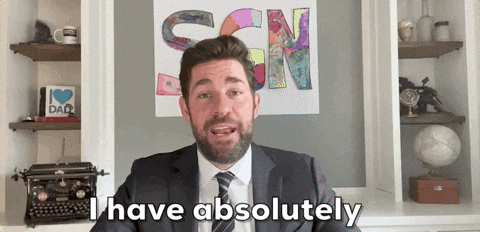
Our purpose emerges from the exploration of what we value most. When we start defining our purpose in life it’s best not to focus on how we’re going to attain it. When we identify and commit to our intentions the opportunities for achieving our purpose will start to arise. Defining our purpose helps us define our goals and allows us to focus on what’s truly important to us. Because if you don’t know what you want to achieve how can you set goals that are going to get you anywhere?
It’s the equivalent of getting into a car and just driving without having a destination. You’ll end up somewhere but you’ll get out of the car looking lost and confused because you have no clue how you got there and where you should go next.
I know that people push the “Just go, don’t dwell on things for too long and just live your life” which I personally partially agree with, but the organised and having a plan together a part of me shivers at the thought of just doing things without a well thought out plan.
The truth is, to succeed in this life you need to be a bit of both. You need to experiment, take risks ad see how far you can push yourself. At the same time, you need to be intentional with your time and ask yourself, where is this going to take me? Is this what I really want?. Taking action is amazing, it’s what I urge you to do but take action based on a plan that’s going to create the life that you want to live.
What is the difference between being ordinary and extraordinary? The answer to that is dependent on the importance you hold to the opinions of the outside world and what you want to achieve. The outside world doesn’t get to define who you are or what you are. The answer lies within you. We can all choose to step away from the ordinary path that our society promotes and step into an extraordinary life.
An extraordinary life is a choice to follow our own values, our own inner wisdom, our own intuition and to top it off, your very own version of success.
“My invitation to you is to begin living every moment as though you are miraculous and deserve to live an extraordinary life. Fake it if you must and keep faking it until it’s real to you. The gift you will be giving yourself is a lifelong journey of discovery, one that is infinite and infinitely rewarding. Begin the journey. Today. This moment. Now.
Robert White

What do you think it looks like to live a false life?
Here’s an example:
You’re forced into going to university to study to become a lawyer because your parents would love to boast about having a lawyer in the family and they know you can make a substantial amount of money with this career choice. However your dream is to become a chef, but you’re scared to disappoint your parents so you decide to live the life they think you should live to avoid arguments and making them unhappy.
Your best friend detests your partner of choice and convinces you to leave them in which you end up with a partner who everyone likes but they don’t fulfill you the same way and feel pressured to start a family that you don’t know if you want.
You end up in debt, depressed, unfulfilled and full of self-doubt. Does this sound like the life of someone who was able to plan and create the life that they wanted to live? Absolutely not. This is the life of allowing outside influences to determine how you should live based on their own opinions and values despite you not feeling the same.
This isn’t the type of life that anyone should live. Yet there are people who both willingly and unwillingly choose to live their life based on the opinions of other people and the preferences of society either because they are unaware of what they truly want or they’re scared to go against the grain.
“ You won’t be fulfilled if you don’t have children”
“ You won’t be fulfilled if you don’t get married”
“ You won’t be fulfilled if you don’t make X amount of money”
These are common misconceptions we may get told in our lives. No one should make you feel bad for not doing something that they think will fulfill YOUR LIFE. Seeking third-party approval and people-pleasing is one of the main causes of internal conflict, depression and stress.
What gives you purpose is personal to you. Our purpose in life is the intended result of our determination, intention and focus.
To find your purpose you need to get to know yourself on a deeper level. Listen to your inner core, write down all the things you want, all the things you want to change about your current situation and what your ideal life looks like. Only then can we figure out an action plan on how to move forward.
When you understand your values and know what you believe in, your confidence and sense of self-worth skyrockets. When you know what you want to achieve and you have a plan of action for it, nothing and no one should be able to stop you.
What are your core values?
“It’s not hard to make decisions when you know what your values are” – Roy Disney
Your core values reflect the fundamental choices of who you want to be. Having well-defined core values helps us avoid making choices that work against who we want to be.
When we understand our core values the process of our decision-making improves, and our lives become a lot easier when we live according to ALL our core values not just some of them. A life lived in alignment with all your core values results in balance and harmony. (Ahh bliss)
Finding your purpose isn’t something that happens overnight, and it can be challenging to live a life of purpose, but living your life on your own terms and fulfilling your own goals will be the most rewarding and most fulfilling thing you will ever do.
Here are a few ways to get you started on the right track to find your purpose:
1. Live in integrity with your core values
If you want to know what’s going to make you feel alive with energy every morning you need to know what you stand for. The best way to get to know what you stand for is to get clarity on what you value. What’s important to you? What do you truly care about? Self-awareness is key. Check out my eBook The Keys to Self-mastery where I dive deep into self-awareness and how it’s the first step to becoming a true master of yourself.
2. Live in the moment
While you’re working on finding your purpose don’t forget to live in the moment. Cherish every moment and seek to live life without any regrets. You don’t want these years to fly by and feel bad when you’re older that you didn’t take in the moments you should have. When you’re cutting fruit to put in your smoothie, be in the moment. When you’re at the supermarket looking for flowers to buy to cheer up the room, be in the moment. When you set up a candle-lit bubble bath for yourself, be in the moment. Don’t take these small moments for granted.
3. Avoid the need for validation
A lot of people fear living up to their full potential because of judgment and the fear of being rejected by others. The only real validation worth pursuing is the validation of yourself.
Allow time to transform your dreams into reality without involving a lot of people on the journey if you fear that you don’t have a lot of supportive people around you.
Heather’s top tip: Although it’s good to get inspired by others remember that what works for others might not work for you. Only you know exactly how you truly feel and what you want and even if you do try to imitate someone else’s journey/strategies there’s no guarantee that you’ll end up where they are. Focus on crafting your own journey rather than watching someone else because I guarantee you, they are not showing you the whole thing.
4. Acknowledge your strengths and use them
Focus on developing your strengths and learn to utilise them efficiently in a range of situations. Your strengths are the abilities, knowledge, personal attributes and skills you already have. However, to actually call it a strength you’ve got to be pretty damn good at it. Once you know what your strengths are look for ways and opportunities to use those abilities and qualities.
Want to learn more about core values and how to live with purpose?
Well, you’re in luck my love.
INTRODUCING… How To Live With Purpose mini-course
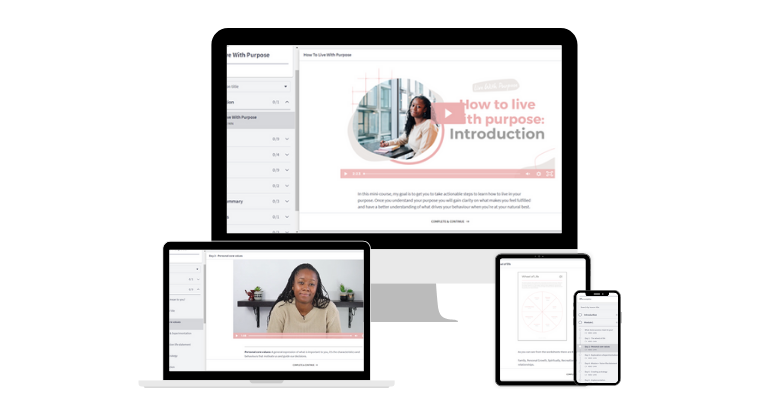
Learning how to live with purpose is the beginning of your life’s roadmap. When you don’t know where you are going you can end up in any direction and get lost in the land of “I don’t know who I am!”. What happens when you get lost? You get frustrated, overwhelmed and confused. This FREE mini-course will give you all the basics you need to start you on the path that leads you to the life that you want to live.
It’s waiting for you!
Course format: I’m going to take you on a four-week length mini-course that emphasizes on taking daily action on how to live with purpose. There are 4 modules within the mini-course with each module having its own set of training videos and resources.
You will focus on: Your WHY, What success means to you, Your personal core values, your passion Vs. Purpose + Plenty more.
What you will learn: How to map out your ideal life, How to incorporate living out your passions as well as your purpose in your daily life.
This is for you if: You crave meaning and fulfillment, you’re unsure of how to connect the dots between your dreams and reality, you’re ready to level up in your life, You’re frustrated because your lack of direction is holding you back from what you know you are capable of.
What you get inside: Exclusive resources, checklist, personal development challenge, value-packed short videos
Your joy is your responsibility and your responsibility alone.
Don’t waste any more time just stumbling through life. Take charge and figure out what your ideal life looks like and work towards it with an awesome action plan.
Remember to check out The keys to self-mastery eBook if you want a step by step plan on how to become a true master of yourself so that you can shop up every day with the discipline and confidence to get what you want out of your life Get the full rundown here > The keys to self-mastery eBook
Related blogs
How to improve your life one day at a time
Did you know that people on my email list sometimes get exclusive discounts on my products? Join the community and save yourself some coins!
Freshly-squeezed inspiration, and no-nonsense tips + tricks to improve your life delivered to your inbox weekly.
Subscribe to my newsletter
Subscribe
You're all signed up!
Be sure to whitelist our email address so that all the goodies make it to your inbox.




